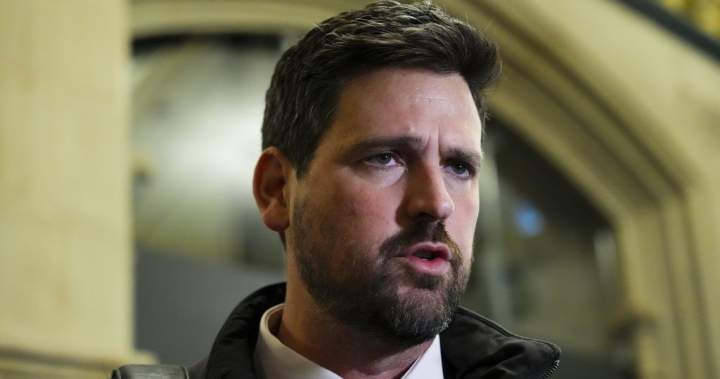Justice Minister Sean Fraser said he would be open to amending federal hate crime legislation to outlaw other “hateful” displays of symbols by groups not currently covered by the bill, including the Ku Klux Klan.
Bill C-9, introduced in the House of Commons in September, makes it a crime to publicly display symbols associated with listed foreign terrorist organizations as well as the Nazi swastika and SS bolts, for the purpose of wilfully promoting hate. The new penalty would carry a maximum sentence of two years in prison.
During an appearance by Fraser at Wednesday’s Senate question period, independent Sen. Paula Simons noted the list of terrorist entities does not include notable hate groups like the KKK, “which would mean that displaying a burning cross or a noose would not be captured by” the bill.
The senator said the terrorist list — which includes anti-Israel groups like Hamas and Hezbollah — was being used as a “proxy” for hate groups in the legislation while ignoring other hateful organizations.
Fraser said the government opted to limit the definition of a hateful symbol in the new bill to “certain objective criteria” like the foreign terrorism entity list “to ensure this is not subject to the political whims of the government of the day.”
If additional groups are added to the terrorism list by independent decisions from the public safety minister, those changes would be reflected in the hate crime bill, he added.
“This is something that I don’t intend to be dogmatic about,” the minister told the senators.
“Should parliamentarians determine that there is a better path forward, please know that I would accept those recommendations in good faith.”

Fraser later acknowledged there is “no one perfect definition (of hate) that the entire world is going to agree upon,” calling the decision to “start” with the list of foreign terrorist entities “a fairly safe bet.”
“Should there be other definitions to better capture groups that actually promote hate, please know that I will be very interested in the feedback of this chamber,” he said.

Get breaking National news
For news impacting Canada and around the world, sign up for breaking news alerts delivered directly to you when they happen.
Canada’s Criminal Code does not have a legal definition for a hate group.
The RCMP’s training guide for front-line officers defines hate groups as organizations “whose goals and activities attack or vilify an entire group of people on the basis of colour, race, religion, national or ethnic origin, age, sex, sexual orientation, gender identity or expression, or mental or physical disability.”
“The presence of racist or otherwise prejudiced members within a larger organization or group does not qualify it as a hate group; in order to be classified as such, the organization or group itself must be characterized by and promote a hate-based orientation or purpose,” the guide says.
While groups currently listed by Canada as foreign terrorist organizations include extremist Islamic groups like Hamas, Hezbollah, the Islamic State and their various proxies — as well as neo-fascist and racist organizations like the Aryan Strikeforce and Proud Boys — it also features Mexican drug cartels and separatist or communist political parties in Turkey, Peru and elsewhere that are not similarly focused on promoting hatred of particular groups.
The most recent addition to the list, India’s Bishnoi Gang, is considered a violent nationalist criminal organization rather than a traditional hate group, although it has been accused of targeting Sikh separatist figures in Canada and other countries.
Fraser told reporters in September while announcing the hate crime bill that it’s not a “blanket ban” on particular symbols.

The legislation specifically exempts the use of listed symbols in “legitimate” circumstances — such as journalism, education or art — and “good faith” displays intended to point out the harm such symbols create.
Although he declined to get into “hypothetical” scenarios, Fraser explicitly said “this is not about the Palestinian flag,” which some Jewish organizations have said has been used to promote antisemitism amid the ongoing Israel-Hamas conflict.
“Canadians have the right to free expression,” he said at the time. “This bill goes to great lengths to specifically protect the ability of Canadians to take part in peaceful protests and to freely express themselves in a nonviolent way.”
Civil rights groups have warned the legislation as written could limit the ability to engage in protest and political speech, and could indeed target the simple flying of certain flags at demonstrations.
“I believe the minister was not able to answer that question, and neither are we, so it’s definitely a risk that this type of conduct will be criminalized,” Anaïs Bussières McNicoll of the Canadian Civil Liberties Association told Global News in an interview in September.
The bill is currently being considered by the House of Commons justice committee. The Senate will get its chance to review the bill and propose amendments if and when it passes the House.
© 2025 Global News, a division of Corus Entertainment Inc.




